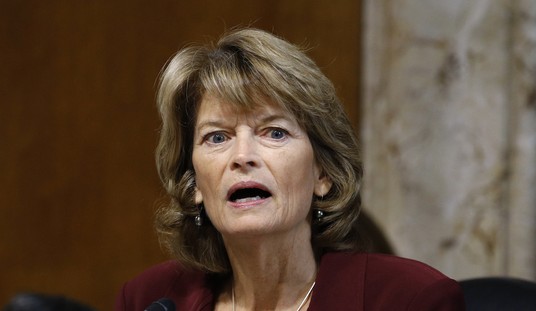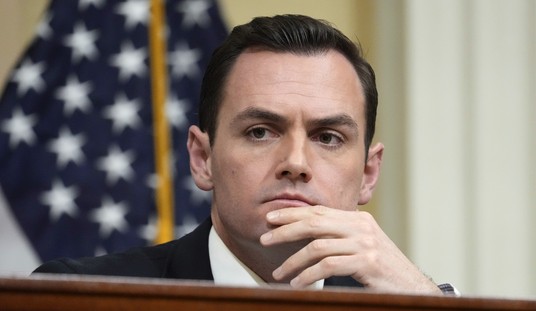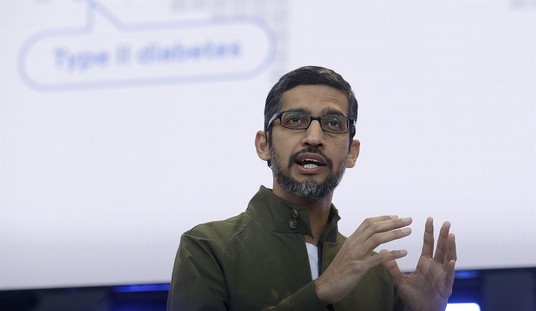A feud between the student body of the University of Missouri and its president ended today with the latter’s resignation. A series of incidents on campus, and Tim Wolfe’s purported lack of response to them, escalated the student protests to a threatened boycott by the Mizzou football team, and one student going on a hunger strike:
The president of the University of Missouri resigned Monday amid escalating protests over racist incidents on campus and how he had responded to students’ concerns.
Tim Wolfe announced Monday morning at a special meeting called by the Board of Curators, the university system’s governing body, that he would step down immediately.
Tensions were high on campus Monday — with a student on a hunger strike, others camped out in solidarity, faculty members canceling classes and members of the football team threatening to boycott the rest of the season. In the morning, the MU undergraduate student government association formally called for the removal of the university’s president.
Wolfe says he wants his resignation to bring “healing” to the campus, but offers a rather pointed assessment of the activism on campus that led him to resign:
“It is my belief that we stopped listening to each other,” Wolfe said during his statement. “We didn’t respond or react. We got frustrated with each other and we forced individuals like Jonathan Butler to take immediate action, unusual steps to affect change. This is not – I repeat, not – the way change should come about. Change comes from listening, learning, caring and conversation and we have top respect each other enough to stop yelling at each other and quit intimidating each other.
“Unfortunately this has not happened,” Wolfe said.
So what were these incidents? Er …
A campus group, Concerned Student 1950, which refers to the year the first black student was admitted to the university, has held multiple demonstrations this fall protesting what Missouri graduate student Jonathan L. Butler described as a “slew of racist, sexist, homophobic” incidents on the university’s Columbia, Mo., campus, and Wolfe’s response to them.
A group of black students were rehearsing a skit in early October when a white student climbed onto stage and shouted racial slurs. Protesters blocked the president’s car during the homecoming parade a few days later; he looked detached and did not engage with them as they shouted. Later that month they issued a list of eight demands, including Wolfe’s removal as president.
The group also accused Wolfe of allowing his driver to hit one of the protesters, and of not intervening when the local police department “used excessive force” to deal with the demonstration. Unless Wolfe “acknowledge[s] his white male privilege, recognize that systems of oppression exist, and provide a verbal commitment to fulfilling Concerned Students 1-9-5-0 demands,” the group insisted that he resign.
Apparently, not engaging shouting demonstrators who block traffic is a firing offense in Missouri. Who knew? If the two claims about force are legitimate, then the group has a point, but … the entire missive is so over-the-top hysterical that it’s difficult to lend it any credence. Demanding that Wolfe “acknowledge his white male privilege” smacks of Soviet show trials. What “systems of oppression” are evidenced by one lone racist jackass getting on stage and shouting idiotic remarks, or another malefactor drawing a swastika in feces on a bathroom wall? As of fall 2014, Mizzou has a student body of over 35,000 people — more than enough to have a handful of jackasses disrupting the campus, and who must now feel rewarded by the extreme overreaction of everyone involved. At any rate, Wolfe was willing to meet with protesters and work on their issues, but that wasn’t enough as long as Wolfe wasn’t willing to confess to his thoughtcrimes in public, apparently.
Philip Bump writes that the impact of the football team’s threatened boycott shows that the athletic department has a lot of control over universities — even teams with 4-5 records:
That’s the fourth point: There’s huge long-term economic power in college football programs. The Tigers aren’t having a great season, at 4-5 after four straight losses. They’re still in contention for one of college football’s countless bowl games, assuming they close the season strong. If they did make a bowl, the school would get some amount of money as a bonus. Last year, schools that played in even the least-known games got six-figure payouts.
There are any number of other economic pipelines that are put at risk. The University of Michigan — a much bigger program than Missouri’s — signed a deal with Nike worth $11 million a year for 15 years. That’s just to allow Nike to outfit their teams in games. Missouri gets $2.2 million — plus bonuses if those Nike uniforms make it to the Bowl Championship Series (which they will not) featuring the very top teams in the country.
Those television agreements that are mentioned in the BYU contract are another thing altogether. Missouri is in the SEC Conference, which means they earn $15.6 million per year just to be seen on the SEC Network on cable. By the 2018 season, the Mercury News’s Jon Wilner estimated in March, the school will get $35.6 million in overall television revenue — and that’s a conservative estimate.
How much the school would lose if the team boycotted even one game is hard to say. But swinging back to politics, it’s easy to see where the leverage lies.
It’s also a good reason for universities to rethink their commitment to big-money sports. I like college football as much as the next fan, but it’s impossible to see this as anything else but a corruption of the core mission of higher education. If football drives these kinds of outcomes, what kind of academic outcomes does it drive for these schools as well? Do other administrators pursue go-along-to-get-along policies to keep teams and boosters happy?
Maybe the larger lesson of this story is this: Let the NFL fund its own minor leagues, and let universities get back to education.
Update: I’m not sure if “long-standing” is a good description of the feud; Wolfe has been criticized for a while, but this controversy is of relatively recent origin. I’ve taken it out.








Join the conversation as a VIP Member